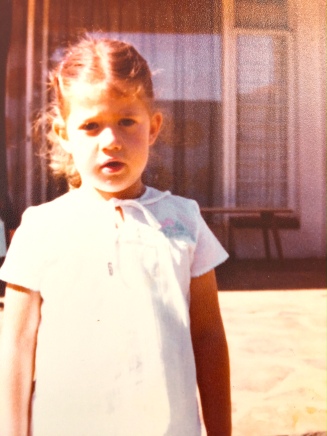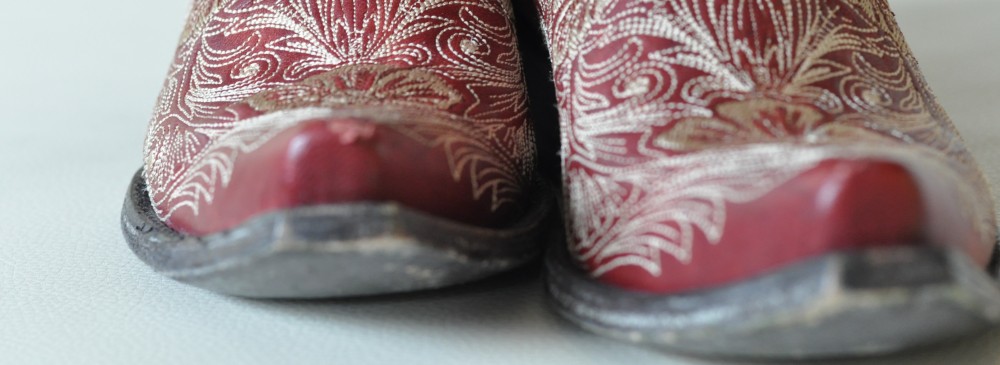
The mulberry tree stood at the top of our garden, right next to the driveway. The leafy branches cascaded down to the ground on all sides, creating a lush dappled escape from the hot and bothered afternoons of netball practice and math homework. The mulberries were plump and sweet, dark purple fruit smeared like a bruise against the bright green leaves. We spent hours sheltered in the bosom of that tree. When we crept out the sun was about to descend in the vast African sky. Streaks of mulberry juice were visible on our blue school uniforms, and the tops of our fingers and even our bare toes were stained violet. Mulberry stains linger for a while.
We languished in a warm frothy bubble bath until our fingers and toes were wrinkled and only the slightest trace of violet remained. We sang silly songs and added more bubbles, and even though we had spent all afternoon devouring mulberries, suddenly we were starving. We sat at the big table in the dining room, our long hair dangerously close to the deliciously greasy lamb chops and homemade French fries. The sun streaked the African sky red and orange, and the mulberry tree was a dark, friendly silhouette at the top of the garden. By now the crickets were singing their loud nighttime song, and soon we would go to bed, happy and full of mulberries, lamb chops and the simple childhood joy of early summer.
Those were the best of times. For me.
And the worst of times. For others.
My childhood memories are bright and vivid, photographs saturated with color and smiles: family barbecues, dance parties, sports events on the big fields at school, afternoons in the pool or in the mulberry tree at the top of the garden. There are cousins and friends, Granny’s ginger cake, and our fluffy Maltese poodle. Magnum. It was the 80s and he was a handsome fellow.
It was South Africa, in the 80s. A complicated, uneasy time and place of separation and oppression, of deep and offensive division, of struggle and survival. A time and place where the same African sun rose and set on people of every size and every color, but with different degrees of warmth and comfort.
A time and place of apartheid. The only time and place I knew.
Our house was big and comfortable, with a pool in the front yard and a swing set in the back. Sometimes, during school vacations, our housekeeper’s daughter, Avril, would come stay with her mother in her rooms downstairs for a few days. The rooms were separate from our house, sparsely furnished, comfortable and reassuring. A brightly woven rug warmed the concrete floor and the bed was raised on bricks to keep away the evil tokoloshe sprite, a common practice in South African cultures.
Avril and I were the same age and we played on the swings in the backyard and ate mulberries together. Her home language was Sotho and she called me “Nee-gee” in heavily accented English. English was the only language we spoke to each other, and it didn’t occur to me that perhaps she wouldn’t know how to speak it. My Sotho never progressed beyond Dumela, o kae? Ke teng, wena o kae? (Hello, how are you? I’m fine, how are you?)
She would stay with her mother for just a few days, before going back to the township where she lived with her father or grandmother or aunt, or all three. How difficult to grow up anywhere, but especially in a time and place like that, without your mother in your daily life? My mother called me inside to get ready for ballet class, and I did not think about Avril until the next time she came to visit her mother.
Such was my life in apartheid South Africa.
I like to visit my childhood. I like to remember my grandmother’s cakes, and those hot, simple days in the mulberry tree. My heart aches with longing when I smell woodsmoke at twilight, such a distinctly African smell, and the sight and scent of fragrant jasmine in early spring always makes me homesick. For my childhood. In apartheid South Africa.
The memories are happy ones, of a young, growing girl with fingers stained purple, living a full and joyful life. As young, growing girls should do. But there is guilt and real pain in those memories, for all the girls, all the children, that didn’t grow up the way I did: in the leafy shade of a very special mulberry tree.
Inspired by the prompt “Hiraeth” from Linda Schreyer.
This is a Finish the Sentence Friday post, where writers and bloggers gather together to share their versions of a completed sentence. This week’s prompt was, “How I grew up to the be the one I am now…” Hosted by the wonderful Kristi of Finding Ninee and co-hosted by this week’s sentence-thinker-upper Upasna Sethi of Life Through My Bioscope.

